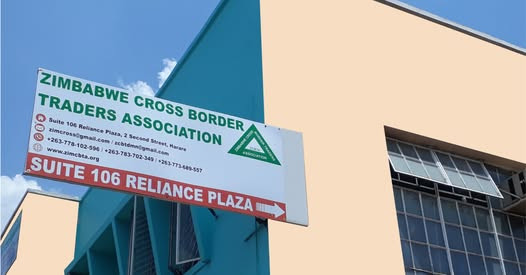
THE Zimbabwe Cross Border Traders Association (ZCBTA) has revealed that mass markets can be transformed into secure employment zones with full social security benefits if properly structured and regulated, NewsDay Business can report.
Employment zones are areas that are designated to loosen restrictions and requirements on government assistance in job acquisition, thereby lowering social spending.
ZCBTA, a registered association representing cross-border traders, argues that current policies fail to accommodate the realities of informal traders, who make up the bulk of Zimbabwe’s workforce.
The association is pushing for the formation of committees at each market comprising market representatives as well as central and local government officials to define operational modalities.
The suggestion by ZCBTA comes as the government recently intensified its efforts to force the informal sector to formalise operations to shore up Treasury’s dwindling revenue collections.
“There is a lot of money circulating daily in mass markets across the country. These markets are a source of livelihood for many people, yet they remain unstructured,” ZCBTA said in its submissions to Parliament.
“By forming market committees that include all key stakeholders, we can turn them into secure employment zones with full social security benefits.”
Zimbabwe’s informal sector is a major driver of economic activity, contributing 80% of employment and 60% of the gross domestic product valued at over US$8 billion.
“For policymakers to leave this massive economic energy outside the mainstream economy is a serious mistake,” ZCBTA said.
“The Parliamentary Portfolio Committee can make a meaningful impact if it pushes the Ministry of Finance and the Reserve Bank of Zimbabwe to seriously consult informal economy representatives —rather than engaging only with big businesses and passing statutory instruments from an ivory tower.”
The association is also proposing a national digital registration system to document economic actors at each marketplace.
This system would categorise different players, such as farmers, stallholders, transporters and bulk-breaking vendors, while also tracking daily market prices and fees collected.
“It is possible to develop an IT system that simplifies registration while improving transparency in revenue collection,” ZCBTA said.
“This would ensure that market fees and service charges are properly accounted for and reinvested into improving market infrastructure.”
The association suggested that revenue collected from markets should be distributed as 30% to the central government, local authorities (50%) and 20% to market committees.
This money would go towards maintenance and development.
Additionally, ZCBTA highlighted the potential of liquor sales taxation.
It noted that the privatisation of beer sales post-independence, while beneficial for indigenisation, deprived municipalities of a key income stream for service delivery.
“Liquor sales provide both entertainment and livelihoods, but they also have negative effects, such as noise pollution and environmental degradation, especially in high-density areas,” ZCBTA said.
To address this, the association proposed a liquor consumption tax deducted at the source using a digital system.
This system would track where alcohol is consumed, ensuring that funds are allocated to affected communities.
“For transparency, we recommend allocating 20% of the collected revenue to the central government, 30% to ward-level development projects and 30% to local authorities,” ZCBTA said.
The association insists that the government must rethink its approach to informal traders and work toward policies that integrate rather than marginalise them.
The central bank has estimated that US$2,5 billion cash could be circulating in the informal sector, which generates annual revenue of US$14,2 billion.
“These markets should not just be seen as places of informal trading but as vital economic hubs that can be harnessed to create secure employment and boost government revenue,” ZCBTA said.










